
"Without the old, life is not the new / Ohne das Alte ist das Leben nicht das Neue "
Performance Installation 2023 Presented: Saturday 26.8.2023 Meeting point: Paderquelle Near by the Sculpture “Waschfrauen” at the river Pader, at Paderborn From 11:00 am – 1:00 pm The Project “Stadtbesetzung” brings in NRW Cities Art in public Spaces. For Paderborn the Artist Nezaket Ekici did Research and produce a new Performance.
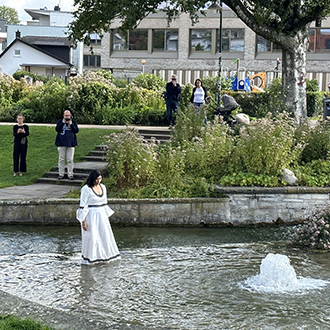 |
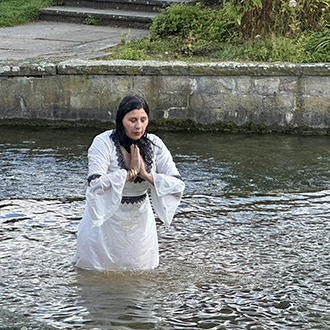 |
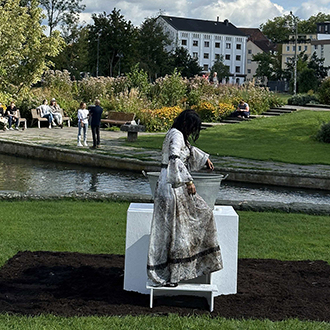 |
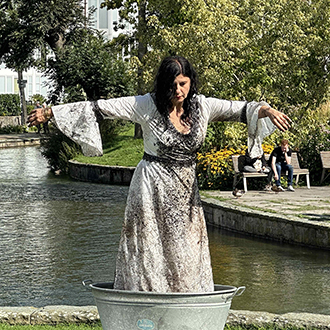 |
|||||
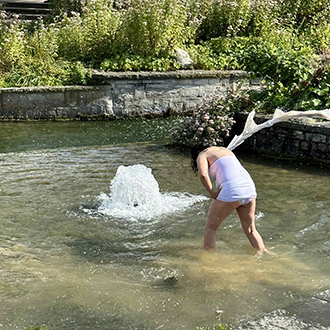 |
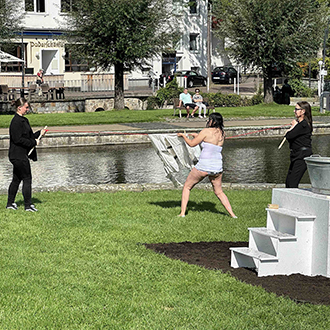 |
 |
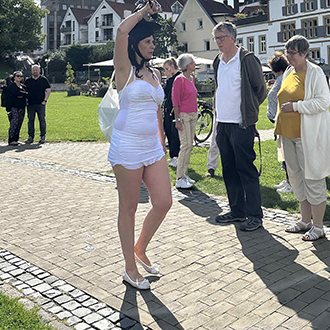 |
|||||
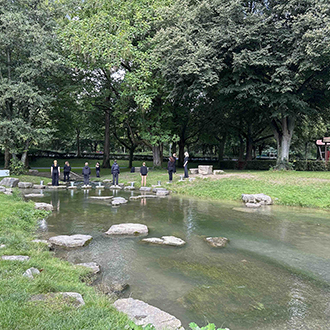 |
 |
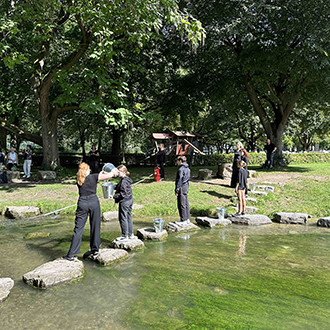 |
 |
|||||
 |
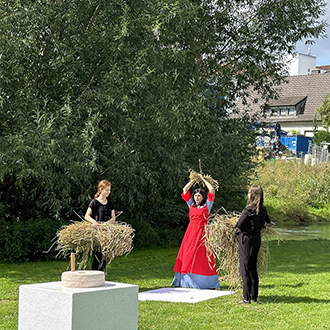 |
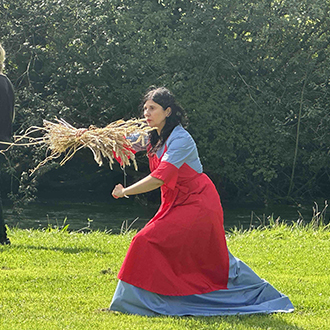 |
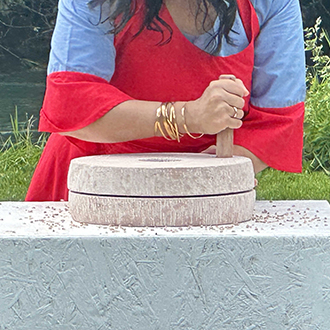 |
|||||
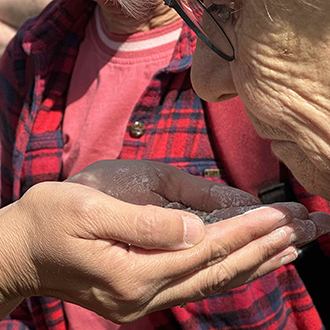 |
 |
 |
 |
|||||
![]()
In “Without the old, life is not the new / Ohne das Alte ist das Leben nicht das Neue", Nezaket Ekici explores concepts of origin within spaces that have undergone drastic transformation. The performance, which lasts for 2.5 hours and takes place at the Pader River in Paderborn, Germany, develops as a sequence of ritualistic revivals: washing, extinguishing, milling, dressing and undressing, Ekici revives past ‘life’ as an allegorical blueprint for the contemporary.
Moving through 3 different locations along the Pader, the performance is akin to Parkour. Ekici engages in a number of distinct activities which re-enact the specificities of professions from 150 years ago. Ekici specifically chooses “ausgestorbene Berufe” or in English, vanished trades—occupations which either do not exist, or do not exist in the same way as before. She sullies herself in dirt and proceeds to scrub herself clean in a large metal basin, much like (laundresses) women who would’ve washed clothes in this river 150 years ago; she hangs that same white costume to dry, held up by her two assistants on a clothesline. Then, balancing a birdbox on her head, she walks to a new part of the river. Here, Ekici dons a firefighter’s uniform, and her assistants begin the arduous task of scooping water from the stream, and passing it along in a chain.
In her reinvention of the profession of women, Ekici both shatters and reconstructs the existential condition placed upon us by our occupations. She takes the laundrette activities expected of women 150 years ago, and both consecrates the memory of their labour by transforming it into contemporary material today: she reminds the audience and the public viewers of the existential changes which have occurred over the last century—how the invention of modern machines have both changed women’s position, and reduced the need for physical labour. Simultaneously, Ekici draws attention towards the unrelenting presence of location: the Pader River, which despite all the changes and alterations in human life and work, remains ever constant. Her performance centers the river as an eternal force: a natural engine in which all life may return to for help—either to extinguish fires, wash clothes.
At the final station, Ekici changes into a woman’s 19th-century baking costume and prepares to create her own flower. She beats wheat onto a white sheet by hand and sifts out the grains. Pouring them into the gristmill, she grinds the grains into fresh flour, inviting onlookers to smell it—collapsing the distance between past and present through sensory memory. Finally, she steps back into the river and releases the flour into the air. The powder, suspended in light before dissolving into water, becomes a final gesture of transience: a blessing, a benediction, a return. In this ephemeral act, the performance closes not with preservation but with a sense of clarity and calm—acknowledging that even the most vital labors are eventually washed away by time.
What Ekici offers is not simply a reconstruction of historical labor, but an existential meditation on memory, legacy, and the cycles of erasure and recognition. As her audience follows her from station to station, they are drawn into a rhythm that resists linear history. The river itself becomes a collaborator—carrier of life, witness to time, and ultimate absorber of all gestures. In reviving the embodied practices of women’s work—from washing to firefighting to baking—Ekici affirms that the past is not behind us, but always flowing through us. Without the old, indeed, life is not the new. (Text: Jono Wang Chu)
![]()
3 Costumes, pedestal, metal water basin, water from the river Pader, metal pails, robe, wheat, gristmill, fireman’s costume, hose, birdbox, soundboxes
![]()
2.5 hour live performance
![]()
Performers:
Nezaket Ekici with Sarah Emmighausen, Michael Labortas, Angelika Gausmann, Lina Hillebrand, Zoe Dammrose, Claudia Dahm, Miriam Behr, Susanne Kirchner, Rebecca Blume, Marlis Stachowitz, Frederike Stachowitz, Jana Neumann, Lena Siebers, Jasper von Schlegell, Demian Fast, Simone Stritzker, Anett Geier, Meret Rahn
The performance is a contribution to “Stadtbesetzung” a project of the Kultursekretariats NRW Gütersloh, and is supported by the Ministerium Kultur und Wissenschaft des Lan